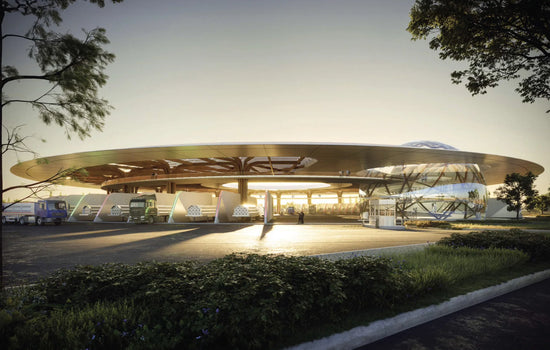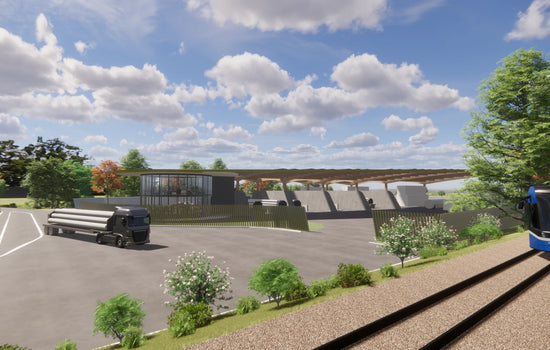Villingen-Schwenningen, June 6th 2024: A multi-million investment puts Villingen-Schwenningen on the national hydrogen map. Infener AG, a pioneer in decentralized and sustainable hydrogen solutions for regional industrial partners, together with Mayor Jürgen Roth (CDU), has today announced the start of construction for an innovative green hydrogen hub in Villingen-Schwenningen. The hub will be built on approximately 10,000 square meters in the Salzgrube industrial area. From 2026, the facility will gradually reach an electrolysis capacity of up to 20 megawatts (MW), producing around 2,000 tonnes of green hydrogen annually. The hub will begin production in 2026 with a 5MW electrolysis capacity that will be scaled up to 20 MW over five years. This will allow for the energy needs of regional logistics, transport, and industrial sectors to be met in a decentralized, efficient, and environmentally friendly manner. The hub's design has been created by the Hamburg-based architecture and design firm Hadi Teherani, with local project management being provided by the architectural firm Schleicher. Investment in the hub is expected to total 45 million euros.

Mayor Jürgen Roth emphasises: "Hydrogen is a key component for the energy supply of the future, crucial for cities, companies, and public institutions; Therefore, decentralised solutions and investments are needed. The upcoming establishment of the H2 hub is such a solution! It is concrete climate policy: for the city of Villingen-Schwenningen, for the regions of the Black Forest, the Alb, and Lake Constance. We are delighted that Villingen-Schwenningen, as a major centre, can now reinforce its pioneering role in hydrogen production and supply."
Given that the industrial region is not expected to be connected to the national hydrogen pipeline before 2040, and studies estimate the hydrogen demand by 2030 to be four times higher than initially expected ((approx. 94–125 TWh compared to 56 TWh), decentralization and regional independence are essential components of the regional hydrogen strategy.





